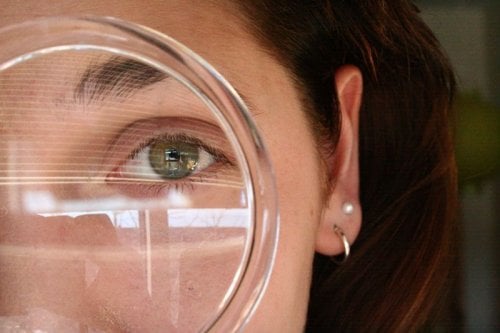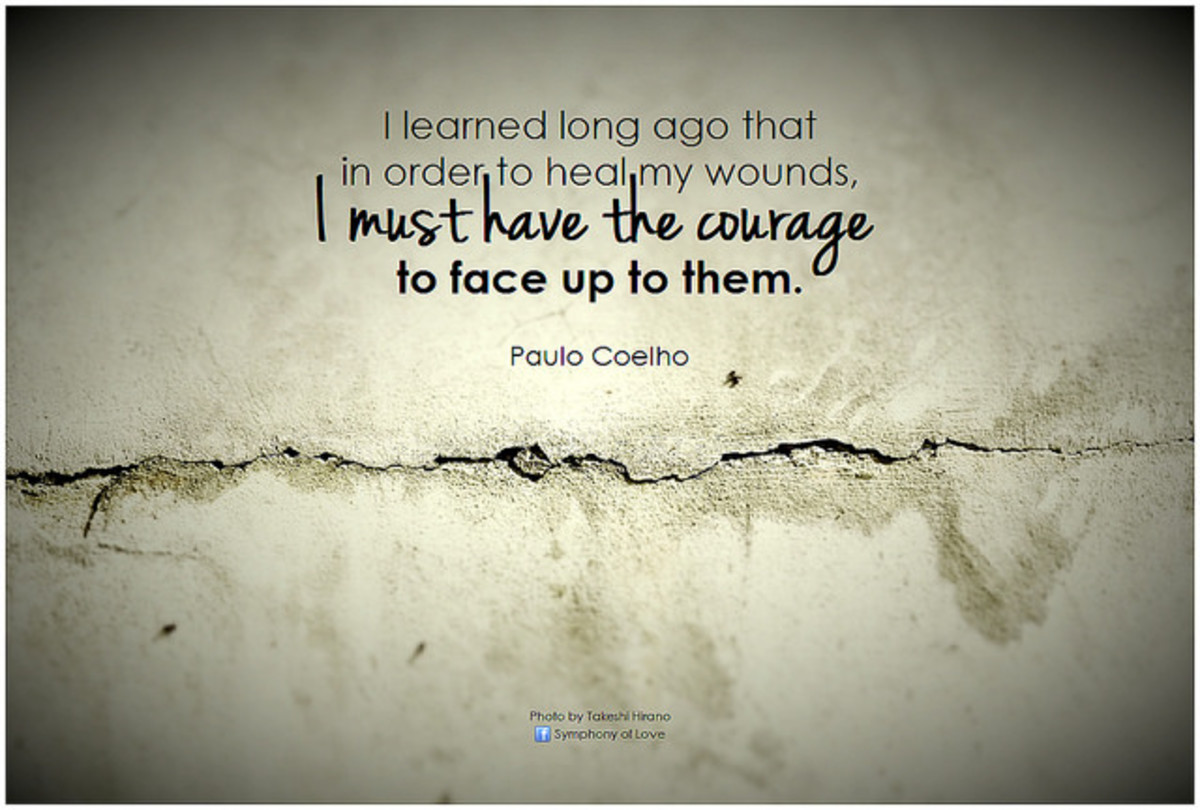- HubPages»
- Health»
- Mental Health»
- Emotions
Improve Low Self-Esteem by Arguing Your Core Beliefs

Self-esteem is an extremely powerful psychological phenomenon that can influence almost every aspect of our lives. How you feel about yourself, as a person, affects how you think and feel. These processes in turn affect how you behave. The way you view yourself is often reflected, either covertly or explicitly, in most areas of your life – your relationships, your home life, your work performance, your achievements (or lack thereof), and so on. If you have a low opinion of your self, it will tend to show in many areas of your life. The irony is that as these aspects of your life are negatively influenced by your low self-esteem, they then reciprocally generate more negative thoughts, feelings, and behaviours which only serve to lower your self-esteem even more. And a vicious cycle emerges. So in essence, a person's self-esteem has a huge bearing on how much they will enjoy their life. Low self-esteem at the very least inhibits your satisfaction with life, and at worst can lead to depression or worse.

While many factors contribute to a person having a low opinion of his or herself, an excavation of that person's inner psyche would almost definitely uncover an intertwined and complex core belief system at its roots. A negative core belief, as viewed by cognitive psychotherapists, is a rigid, unbending, and over-exaggerated belief about one's self, other people, or the world in general. Difficult or painful experiences, especially in early life, often provide the catalyst for the formation of negative core beliefs, but do not necessarily cause them. After all, it is up to that person how they interpret their experiences, and so it is the meaning they attribute to events that is the real culprit. Often negative core beliefs are seeded in childhood and proliferate as that person grows into an adult. What makes a negative core belief dysfunctional is not whether or not it is true, but the fact that it is inflexible to the point of rigidity. A core belief seeks not to disprove itself but exists in a state of unquestioning ignorance.
While this may make the pursuit of self-worth sound a bit insurmountable, the opposite is actually the case. If you want to change how you value yourself and improve your self-esteem, you first have to change the way you think. Challenge your old belief systems, especially those that feed your negative self-view, and the way you think, feel and behave will usually follow suit.
At this moment, you may be thinking that you've already tried positive thinking techniques and affirmations, and maybe they helped you feel better momentarily, but they never really affected any lasting changes in your life. What I am suggesting is that it's not necessarily and entirely what you think that is the problem, but how you think. In a way, it's a malfunction or mechanical errors in your thought processes.

Because I said so...
Here's an analogy you may be more familiar with. As a child, probably one of the most frustrating and angering explanations you were ever given by your parents was the dreaded 'because I said so'. Its understandable why this simple statement can cause so much ire. Not only does it deny your request outright, but it also precludes any attempts you could make at a counter-argument. It leaves you no room to make your case. If mom says you can't go outside because it is cold and rainy, you might be able to argue that you will wear a warm sweater under your raincoat and put on your wellies. But if she says 'because i said so', then your only rebuttal is 'why?' to which she may still respond, verbatim, the same reply. Her reasons for denial may be valid, but it's the way it is delivered that really frustrates you.
Now anyone who is a parent knows that this response is usually reserved for times when our children push endlessly, and seem satisfied by no answer that does not comply with their wishes. And so 'because I said so' pops out almost automatically, to put a definitive end to the discussion. We don't tend to overuse it. Why? Because it is frustrating and it leaves no room for reasoning and opening communication between ourselves and our children.
The paradox is the fact that, while we dont use it haphazardly with our children, the principle that lies behind that phrase is one that we do use, with ourselves, on a daily basis. Not in the sense of denying ourselves from obtaining our wishes, unless of course we have enviably strong will power. Instead, we use this idea in terms of our daily thoughts, and more importantly – our beliefs, especially about ourselves.

Question, search, analyze and challenge...
'Because I said so'. How many thoughts or beliefs do you endorse simply because you have always thought them? How many times have you held an opinion on something, and believed it to be true, simply because you have always thought it? Just because you think something, doesn't make it so. Before Columbus, the collective population thought the world was flat. One expedition blew that theory out of the water. Before Copernicus we thought the universe revolved around us and our Earth, yet his scientific investigations uncovered the heliocentric truth that the sun is at our universal nucleus.
How many other popular opinions have people historically followed without question until new evidence was discovered to disprove them? If we, as the human race, are so apt to believe unsubstantiated theories of this magnitude, how much more likely is that we will also believe, whole-heartedly, even less plausible theories about ourselves?
From this perspective, it suddenly seems that changing your self-esteem by changing your thoughts is not such an unachievable thing. If the world can change its collective opinion about itself, then why couldn't you change your opinion about you? But how?
Your worth is up to you...
Just because you believe that you are, for example, an unlovable person, doesn't mean that you truly are. Like the parent and child scenario, when you endorse a belief simply because you have always held it, you are also leaving no room for discussion and argument. You have to become the Columbus and the Copernicus of your own life. Explore your beliefs and why you believe them, look at the evidence you've used to validate these beliefs in the past, and then look for the evidence you've missed that disproves them.
Many will be able to pinpoint specific childhood experiences or relationship dynamics that contributed to their low opinions of themselves. Some will not be able to clearly identify anything of significance. That is not so important when it comes to feeling better about yourself because life experiences and low self-esteem do not necessarily have a direct cause-and-effect relationship. If they did, then every single person who had experienced 'x' would feel 'y' about themselves. In truth, people can have a range of varied emotions, thoughts, and beliefs in reponse to the same experience. Again, it comes down to individual interpretation of those events, amongst other things.
No matter what 'caused' your negative view of yourself, it's important that you look at how your thoughts, in the here-and-now, keep it going. Looking in at your inner world - how do you talk to yourself? What kinds of biases do you hold against your achievements? Do you hold fast to unrelenting and unattainable standards? If you examine your outer world, do you see a plethora of failures or missed oppurtunities that fuel your low self-opinion? Could it be that these short-comings are in part due to the opinion you have of yourself in the first place? Moreover, does that droning voice of negativity actually inhibit you from taking actions that might help you to feel better about yourself? Or might it be that, if you were to argue your own case vehemently against the obstinate voice of self-doubt, you would atually find a heap of evidence in your favour that has somehow been overlooked? If you think of a negative core belief as having a life of its own, you must remember that, like anyone, it seeks not to disprove itself but looks for those occurrences that validate it, just so it can say 'See, I was right!'.
Point in case: I once worked with a client whose opinion of herself couldn't be any lower if it transmutated into rubber on the soles of her shoes. She believed that because of some errors in judgement she had made in the past she was a bad person unworthy of love. This was compounded by the fact that, at the time, she was also unemployed, recovering from a serious addiction, and battling a weight problem. Every waking thought she had focussed on what was wrong about her, and how she would never amount to anything. In her outside life she was crippled by these thoughts, and because of that, she actually did very little to change them. She barely left the house aside from going to a twelve-step meeting now and then. I took the stance of the devil`s advocate with her, and on closer scrutiny of her daily thoughts it became evident that not only was she unduly harsh on herself, but also that she was clearly biased and frequently overlooked important facts that contradicted her self-opinion. She failed to recognise some key achievements she had accomplished in her life, ignored the regular charitable actions she engaged in, and dismissed all the little things she did well and the help she gave to other people. However, the more we looked at these things, the more evidence she found that contradicted her low self-esteem, and the better she began to feel about herself. More importantly, as she began feeling better about herself, the more active she became in her life and the more activities she engaged in that would feed her new, revised opinion of herself. This was not down to mere positive thinking, this was because of careful examination and challenging of old belief systems and negative thoughts. She was no longer willing to accept 'because I said so' when it came to her feelings of worth. It simply wasn't a good enough answer for her any longer.
In conclusion, it must be pointed out that the road to better self-esteem is not an easy journey without bumps, twists or turns. Arguing your own negative thoughts and beliefs can be an arduos process, and in order for a new self-image to truly manifest, it is imperative that your behaviours also change in concordance. Change is never easy, internally or outwardly. But it is possible, and it all starts with a little arguing!









